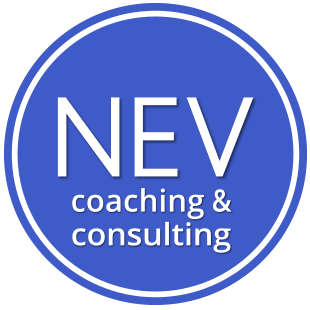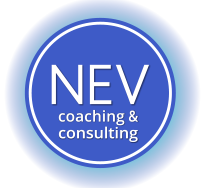“Our lives succeed or fail one conversation at a time.” – Susan Scott
“Out beyond the ideas of wrong-doing and right-doing, there is a field. I’ll meet you there.”
– Sufi proverb
“When a question is posed ceremoniously (really asking, really listening), the universe responds.” – Chinese proverb
Susan Scott, renowned author and leader in cultural transformation and executive education, shares some invaluable insights in her book Fierce Conversations, about how the conversations we have with our people – personally and professionally – can build or destroy our relationships, as well as how to make them more meaningful and effective.
 How many of us have held back who we really are, what we really think and feel, for fear that we will not be understood or offend another, and in turn, suffer the consequences? Yet as Susan contends, many of us “yearn to be connected to something of substance…to be known, and in being known, to be loved…and we respond deeply to people who will level with us.”
How many of us have held back who we really are, what we really think and feel, for fear that we will not be understood or offend another, and in turn, suffer the consequences? Yet as Susan contends, many of us “yearn to be connected to something of substance…to be known, and in being known, to be loved…and we respond deeply to people who will level with us.”
Yet so often, conversations are careful, fearful, superficial, and in so being, we lose the precious opportunities to really connect with others, find answers and make good decisions, and deepen the relationships that are so fundamental to making happy lives and successful businesses. As she states, “Never mistake talking for conversation. A careful conversation is a failed conversation.” In the end, the real risk is “I will be known. I will be seen. I will be changed.”
Susan presents her concept of the fierce conversation, at once beautiful and difficult, but so essential:
- Fierce conversations are about moral courage, clear requests, and taking action.
- A fierce conversation is one in which we come out from behind ourselves into the conversation and make it real.
- In fierce conversations there is neither a struggle for approval nor an attempt to persuade.
- A fierce conversation is not about holding forth on your point of view, but about provoking learning by sitting with someone side-by-side and jointly interrogating reality.
- Fierce conversations often do take time. The problem is that anything else takes longer.
- Fierce conversations require silence. In fact, the more emotionally loaded the subject, the more silence is required.
- Fierce conversations will allow you to feel. Feel what? Something.
What does this mean for ME?
One of the greatest challenges we face in our conversations is the belief that we hold the TRUTH, and our strong attachment to that belief that we are RIGHT. But as Susan claims, “No one owns the entire truth because no one can be at all places at all times… Your version of reality is as good as anybody’s.”
But there is a great importance in sharing what is true for us, with those who are important to us. And not doing so can cause great harm, to our people, our businesses and ourselves.
“Authenticity is not something you have, it is something you choose. Take yourself seriously. Take your life personally. Otherwise, there won’t be enough of you here.” – Susan Scott, Fierce Conversations
The first part is getting clarity on who we are, what we are about, and what we want. Learning to listen to our inner voice, following our instincts, and seeking to live our lives as WE truly want, allows us to be present, open, and active in our conversations with others. Susan writes, “All conversations are [first] with myself – and sometimes they involve other people.” Ultimately, if something needs to change, it begins with ourselves. And when we find the courage to show who we really are, people will recognize it and respond in turn.
What does this mean for my RELATIONSHIPS?
“Successful relationships require that all parties view getting their core needs met as being legitimate.” – Susan Scott, Fierce Conversations
There is such great joy in experiencing an honest, intimate, fulfilling conversation with someone. One with mutual understanding, where space and opportunity is given, to be who we are, to openly explore, and in some, where important change is created.
But the suffering and difficulties caused by failed or superficial conversations is just as impactful. What disappointments, emotions, beliefs, and sometimes catastrophic failures emerge from such moments. Marriages can fail, businesses can fail, and governments can fail their people. Our lives are about people, and as Susan states, “the conversation IS the relationship.”
What does this mean for my WORK / BUSINESS?
“The person who can most accurately describe reality without laying blame will emerge as the leader.” – Susan Scott, Fierce Conversations
Work, and the organizations we work in, are above all a collection of people working together towards a series of goals. And this depends greatly on the quality of relationships we have with our co-workers, employees, vendors, and clients in getting the work done, efficiently and effectively, and creating innovation and an exchange of ideas that can lead to great solutions.
Fundamental to this is maintaining integrity in what and how we do things and how our organizations function. Susan recommends clarifying the vision of one’s position or organization and regularly checking in to see if what we are actually doing is in line with what we are seeking and claiming to do.
And often times, the problem that one may have in their behavior at work, is often also present in other parts of their lives. In turn, “as a leader, you get what you tolerate.” Thus, the ability to confront these challenges directly with explicit messages but also with openness to openly explore the truth together with others can minimize a great many difficulties.
In the end, “Most care deeply about the reputation and values of the companies they work for and would like to feel that their ability to live up to those values in their organization matters,” states Susan.
So how do we make it work?
In Fierce Conversations, Susan Scott offers many practical steps and insights on how to prepare for and engage in a fierce conversation with someone, including:
- “At least once a day, let a conversation truly be about someone else.”
- “Take the pulse of the relationship by really asking and really listening.”
- “Take responsibility for your emotional wake” and bring your message without load and agenda.
- “Advocate your position clearly, cleanly, and succinctly.”
- Ask questions and be ready and open to hear the answer.
- “Listen for emotion as well as intent.”
- Leave room for silence, it allows things to sink in, for new ideas to emerge, and gives everyone a chance to participate.
- Learn to say “no” but in a way that does not leave destruction behind it.
- Learn to say “I was wrong. I am sorry.”
- Give praise when it is deserved, but keep it separate from BUT’s and confrontations.
- Complete the conversation, stay don’t leave.
And how do we get others to engage with us in a fierce conversation and make it real?
“Ask him to. Ask her to. And make your part of it real. That’s all you can do.” Susan states.
What has been your experience with effective and ineffective conversations?
What has worked for you?
What is your opinion on the ideas above?
Share with us your comments and feel free to contact me if I can help you or someone you know on this topic.



Nev, good post, particularly like the tone around courage in conversations.
Keep up the good work!
Thanks Mac, I’m glad you enjoyed it. What moves me about this subject is that it is about *all of us*, and yet, even the best experts struggle with it. It is so easy to dismiss the importance of how we sit down with each other and yet as Susan Scott says, ‘the conversation is the relationship’. I guess the most important part is to keep trying.
All the best to you.